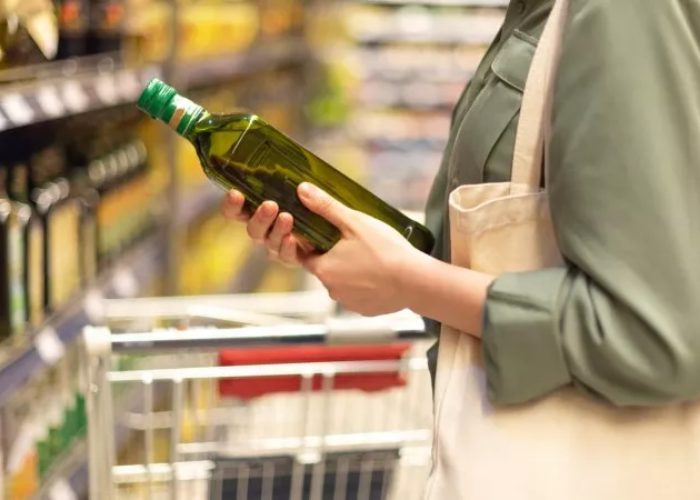Olive oil is beneficial, but not everyone can afford itBY PIETRO PAGANINI
- 16 January 2024
- Posted by: Competere
- Categories: Commodities, Senza categoria

Olive oil is not only good but also considered a health booster. To paraphrase George Bernard Shaw, who once said, “The beautiful things in life are either immoral or make you fat,” we want to delve into a groundbreaking study conducted by the Istituto Nutrizionale Carapelli in collaboration with the Universities of Milan, Perugia, and Naples. This study unveils a paradox surrounding extra virgin olive oil (EVOO), involving medical-nutritional opportunities, low productivity, and high costs for the consumer.
WHY IS EVO OIL BENEFICIAL?
It was already known that EVO Oil was a top player among the most popular foods in the Mediterranean Diet. However, in the mentioned university research, titled “Beneficial effects of extra virgin olive oil: molecular mechanisms,” the multiple molecular and cellular processes involved in the benefits of EVOO related to polyphenols are explained comprehensively for the first time. Through advanced techniques of genetic and metabolic analysis, researchers have identified the molecular and cellular processes through which EVOO and polyphenols influence energy metabolism and the functionality of mitochondria, especially in active tissues such as muscles and the liver.
A NATURAL MEDICINE…
The study also underscores the importance of promoting diets with a high consumption of EVO Oil, such as the Mediterranean Diet, to combat obesity and non-communicable diseases, now considered a silent pandemic by medical science. Obesity is closely linked to severe complications such as type 2 diabetes and cardiovascular diseases—a concern growing, especially among younger generations in Western society, attributable to factors like a lack of awareness of dietary habits.
It is now crucial for policymakers to heed scientific findings. Knowledge of this study should prompt the European Commission to encourage EVOO consumption and, more broadly, advocate for the Mediterranean Diet. The message is clear: EVO Oil is healthy to the extent that it can be considered a natural medicine for preventing diet-related diseases.
…NON AFFORDABLE FOR EVERYONE
However, herein lies the paradox, EVO Oil is a luxury not accessible to everyone. This is because, as often observed, beautiful things in life tend to be expensive.
In recent years, the price of EVOO has steadily risen, mainly due to production difficulties exacerbated by climate change. Following a disastrous 2022 for olive oil mills due to drought-stricken olive groves, 2023 is estimated to have shown improvement.
Italy, the second-largest producer globally after Spain and the leading consumer market, expects to close 2023 with 289,000 tons of oil, a 20% increase from the previous year. While this is positive news, it falls short when compared to the 350,000 tons from the best years. Italy still lags behind the average for the entire Mediterranean region—a trend expected to persist in 2024. Moreover, Italy struggles to meet the demand of the domestic olive oil industry, which requires approximately 1 million tons. In simple terms, Italy imports more oil than it produces or exports as a BtoC product ingredient.
Competitors are not faring well either. For the second consecutive year, Spain will not exceed 765,000 tons of oil produced—almost half the usual yield. In Greece, production has plummeted to 260,000 tons, a 25% decrease from 2021. Tunisia hopes to return to 200,000 tons, while Turkey and Morocco have temporarily suspended exports to the European Union due to low availability. In contrast, Portugal is the only country forecasting an almost 20% increase, reaching 150,000 tons.
Considering these figures and the persistent challenging climatic conditions, optimism is difficult. Add to this the challenges of modernizing the production cycle.
WHAT OBSTACLES?
The introduction of innovative techniques and technological tools to increase productivity is challenging in the Italian context, where plantations are predominantly old and many are not suitable for intensive production. Other obstacles arise from the excessive fragmentation of productive forces, which the virtuous cooperative system cannot fill. Beyond cultural traditions in the sector, it is worth analyzing whether the funds allocated have genuinely improved performance or merely served as survival income and speculation for some.
It is well-known that Italian consumption increasingly relies on imports from more productive and less costly markets, potentially non-European. However, the threat is twofold.
On the production front, new market entrants may surpass us. Faced with our structural problems, more unscrupulous countries might outperform us. Consider Saudi Arabia, where technology enables the establishment of intensive plantations in traditionally hostile areas—an endeavor already in progress.
On the consumption front, the prohibitively high prices of EVO Oil lead many families to turn to alternative nutrients that do not offer the same preventive characteristics as those recognized by contemporary science.
WHAT TO DO
Strategic intervention becomes urgent. Supporting the supply chain should result in positive effects for the final consumer. Promoting interventions by investing in technology, encouraging the consolidation of operators, and facilitating consumer access to the product during a period of elevated prices is essential. Practically, understanding individuals’ and society’s caloric needs and studying how to meet them resiliently and sustainably is crucial. This approach should reduce the impact on the environment and other equally essential productions, ensuring that exports consolidate our position in the international market with a high-quality product possessing unique health characteristics.
Finally, let’s look at those who have already taken pragmatic measures. In Spain, they have temporarily suspended VAT. Granted, with a 4% VAT here, on a €10 product, the savings would be a mere 40 cents. While seemingly small, it could serve as a signal to galvanize the national pride continually appealed to by this government.
Image credits: courtesy of HuffPost Italia >>>
